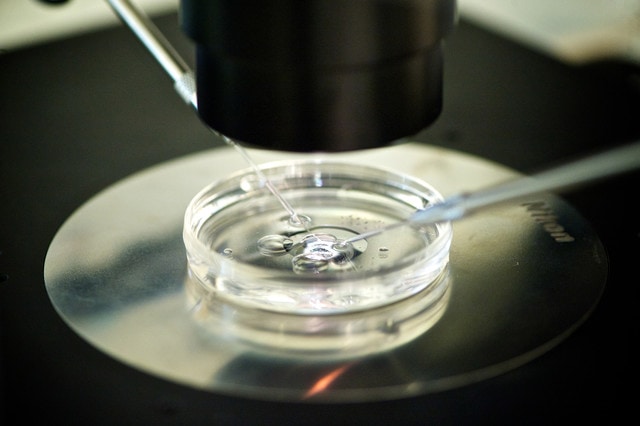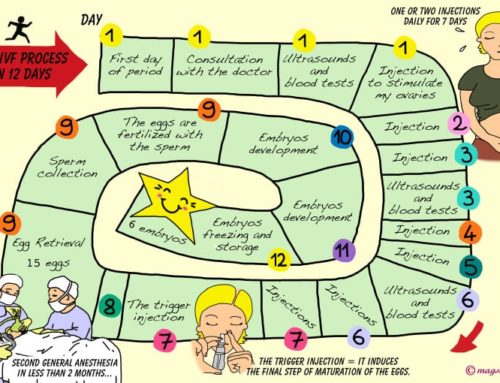The Best Guide for IVF Egg Retrieval Process
What does an IVF Egg Retrieval Process involve?
An IVF egg retrieval is one of the big milestones on the road to assisted parenthood. It’s true that the woman undergoing the egg retrieval process is doing it for herself or for an egg donation.
The IVF egg retrieval process isn’t just the actual retrieval, it’s also an important preparation beforehand. Throughout the entire IVF process, it’s important to eat a healthy diet, drink plenty of liquids and avoid smoking. The entire IVF egg retrieval process takes over two weeks and you should plan on taking the day off. Also do not plan anything too strenuous for the next couple of days.
Egg Retrieval Timeline from start to end :-
1. Ovulation Induction
At the start of a cycle, you will start taking synthetic hormones to stimulate your ovaries to produce multiple eggs. This involves using an injectable medication containing a follicle-stimulating hormone (FSH), a luteinizing hormone (LH), or a combination of both. After eight to 14 days on the first medication, when the follicles are ready for egg retrieval, you will take human chorionic gonadotropin (HCG) to help the eggs mature.
The whole idea is to retrieve the eggs before they are released by the ovaries. Eggs are considered “mature” and are ready for retrieval when they are about 15-20mm in diameter. To determine if the eggs are ready for collection, the doctor will perform either a vaginal ultrasound to examine the ovaries or blood tests to measure the response to the medication.
2. Egg Retrieval
Actual egg retrieval is done 34 to 36 hours after the final shot, generally, HCG, which helps the eggs mature. Since this is a small window of time, it’s very important that you receive that last shot at exactly the time the fertility center or doctor has recommended.
At this point, the eggs are ready and the retrieval has already been scheduled. So, it’s vital that this window is not be missed. The whole retrieval process takes around 20 minutes and goes as follows:
- You will be sedated and given pain medication, most women don’t remember anything when they wake up.
- A transvaginal ultrasound probe is inserted into your vagina to identify follicles. Then a thin needle is inserted into an ultrasound guide to go through the vagina and into the follicles to retrieve the eggs.
- The eggs are removed from the follicles through a needle connected to a suction device.
After that, you’re on your way to recovery and your retrieved eggs are on their way to the lab where:
- The fluid with the eggs in is taken to the IVF lab where the eggs are identified and placed in a culture media to incubate.
- After approximately four to six hours of incubation, the eggs are ready to be fertilized or frozen for future use. This is also when the retrieved eggs are examined and the eggs that appear healthy are sorted out. So, they can be fertilized or frozen for future use.
- Within about 18 hours from the time of fertilization, it is possible to determine if the eggs have been fertilized and have begun to grow as embryos. The eggs are incubated and observed for two to five days before being transferred into the uterus or frozen. If the eggs are going to be tested for genetic abnormalities, this is done at two to three days after fertilization.
3. Egg Retrieval Recovery
It takes about 24 hours for the sedation medication to completely leave the system so the woman won’t be able to drive after the procedure, you should have someone with you who can drive. Since she might still be a little tired and crampy, she will probably want to go home and rest.
4. After the Procedure
When arriving for the procedure you should be as wearing comfortable clothes. This is because after the procedure your abdomen is going to be bloated and you’re not going to feel like wiggling into skinny jeans. There will be some cramping, like menstrual cramps, and you should be given some pain medication before leaving the clinic.
5. At Home Recovery
A light meal, heating pad, or hot water bottle should help. Drinking a lot of fluids and electrolytes will move the extra fluid build-up in the ovaries, out of the body faster. The day after the egg retrieval process, you should be able to resume your regular activities, without anything too strenuous.
6. IVF Egg Retrieval Process Complete
It’s time to relax and pamper yourself a little while your body recovers. The medication should be out of your system within a day or two and drinking plenty of liquids will help your body regain its equilibrium more quickly. The egg retrieval process, with recovery, occupies roughly 2-3 weeks of your life and can mean the beginning of a new chapter in your life or the lives of the people who will use the eggs. This beautiful chapter is called parenthood.























